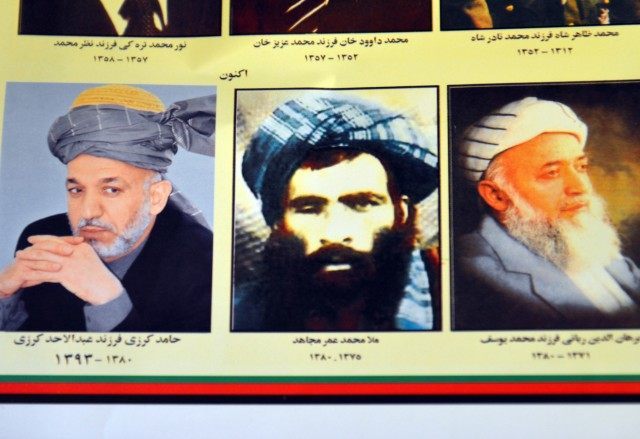Little is known about the new Taliban leader Mullah Mohammad Akhtar Mansoor, who was tapped to succeed Mullah Mohammad Omar after the shadowy leader’s death was announced Thursday.
But Mullah Mansoor is said to be close to Pakistani authorities, who in recent months have moved to improve relations with Afghanistan and who hosted peace talks between the government and the Taliban earlier this month.
Those talks were indefinitely postponed after Mullah Omar’s death was announced this week. Mullah Mansoor’s closeness to Islamabad places him in a good position to revive them, but only if he can rein in hard-liners who want to continue the 14-year insurgency, and who feel they have the wind at their backs now that U.S. and NATO forces have stepped back.
Here’s a look at Mullah Mansoor and what may lie ahead for the Taliban and Afghanistan.
___
WHO IS MULLAH MANSOOR?
Mullah Mansoor was a senior figure in the Taliban and had been acting as Mullah Omar’s deputy for the past three years. If Mullah Omar passed away more than two years ago, as the Afghan government says, then Mullah Mansoor may have been effectively leading the group for some time now, including during the recent peace efforts.
Mansoor was aviation minister during the Taliban’s 1996-2001 rule. After the U.S.-led invasion that toppled the Taliban, he was put in charge of political and military affairs in the Supreme Council, a seven-member body which takes major decisions. The same body appointed him to succeed Mullah Omar in a decision announced Thursday, making him only the second man to lead the group since its founding in the mid-1990s.
Like his predecessor, Mullah Mansoor hails from Kandahar province, the Taliban’s heartland. And like Mullah Omar, details about his exact age, family and whereabouts are largely unknown outside the secretive upper echelons of the group. He’s believed to be in his late 40s.
___
WHY DOES THE PAKISTAN CONNECTION MATTER?
Pakistan is widely believed to have influence over the Taliban, and the Kabul government in the past has accused it of sheltering the group’s leadership. But the two countries have worked to repair ties since Afghan President Ashraf Ghani assumed office last year, and Islamabad has played a key role in getting the Taliban to the negotiating table.
If Pakistan is, as it says, committed to a peace deal between the Afghan government and the Taliban, then the choice of Mullah Mansoor could indicate that the Taliban remains on board. However, his presence could alarm many Afghans, who still feel Pakistan is meddling in order to project its influence in the region.
___
WILL THE TALIBAN SPLINTER?
Mullah Mansoor is unlikely to command the same loyalty as his predecessor, who was hailed as the “Commander of the Faithful” by supporters in 1996 after donning a cloak believed to have been worn by the Prophet Mohammed.
Many observers believe the loss of Mullah Omar could widen a perceived rift between those who want to make peace with Kabul and those who want to continue the insurgency, which this year has been as vicious as ever.
Even if the Taliban remain united under Mullah Mansoor, local commanders could defect to the Islamic State group, which has made some inroads in Afghanistan in recent months. Mullah Mansoor has reportedly written a letter to the self-proclaimed caliph of the Islamic State, Abu Bakr al-Baghdadi, warning his group to stay out of Afghanistan.
___
WHO IS NEXT IN LINE?
Mansoor’s newly appointed deputy is Sirajuddin Haqqani, the leader of a powerful insurgent network allied with al-Qaida that has carried out scores of attacks on U.S. and NATO forces in Afghanistan. The U.S. government has offered a $5 million reward for information leading to his capture.

COMMENTS
Please let us know if you're having issues with commenting.